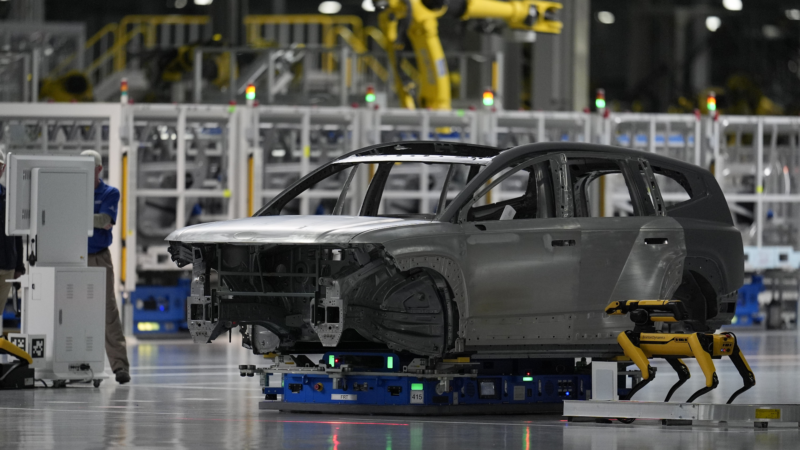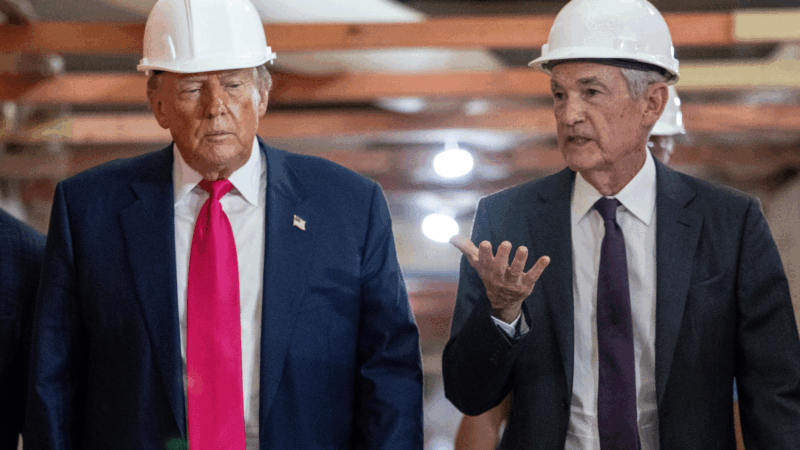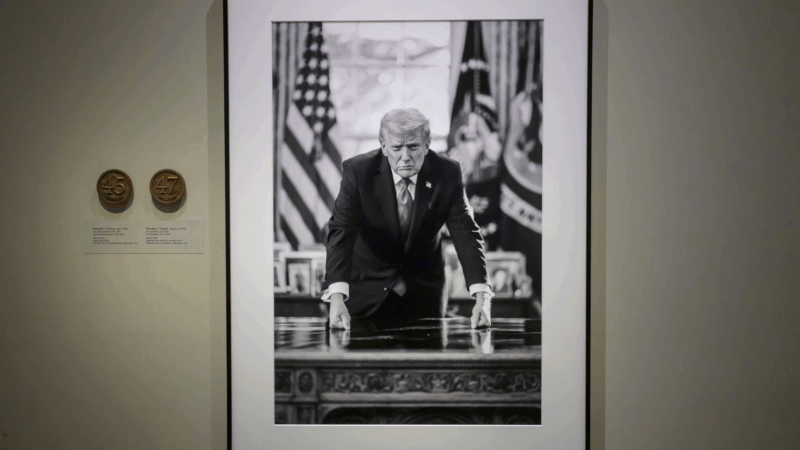Hyundai’s plans for its new Georgia plant reveal an industry hedging its bets on EVs
A few years ago, Hyundai Motor Group triumphantly announced it would be opening a new plant near Savannah, Ga. — a plant that would exclusively make electric vehicles.
“We heard the clarion call of [the Biden] administration to hasten the adoption of new electric vehicles and reduce carbon emissions,” José Muñoz, then the CEO of Hyundai Motor North America, said in 2022.
But at the plant’s grand opening last week, as executives and politicians praised Hyundai’s multibillion investment in the region, the thousands of jobs that come with it, and the plant’s advanced manufacturing technology, something was conspicuously missing from all the speeches.
The word “electric” wasn’t mentioned once.
That’s not just a shift in rhetoric. Over the last few years, Hyundai has changed its plans: Instead of being a dedicated EV plant, it will also make hybrids.
“When we started this project, originally, everybody thought, ‘Okay, the world is going to be fully electric,” Muñoz told reporters after the grand opening ceremony. (He’s now the CEO of the entire global company.) “We were also thinking that way. But soon we realized that the pace of electrification was not going to be as fast as everybody thought.”
EV sales grew slower than companies had anticipated. Hybrids, meanwhile, took off.
“So then very quickly, we decided we’re going to produce also hybrid vehicles here,” Muñoz said.
This trend is happening industry-wide. Companies such as Ford, GM and Volvo have all slowed some EV plans and focused more on hybrids.
It’s hard to ignore that this is happening as the government is pulling a U-turn on EVs. Under President Trump, regulations that would push automakers to make EVs are being rewritten, tax breaks helping consumers buy them are at risk, and funds for EV chargers are frozen.
Some EV advocates have been alarmed about what this could mean for sales. During a Zoom call with reporters on the day of the opening ceremony, Georgia Senator Jon Ossoff, a Democrat, congratulated Hyundai, but also warned: “The Trump administration’s war on EVs poses a serious threat to EV sales, to the electric vehicle industry and the EV market, and therefore to the state of Georgia.”
Hyundai executives, for their part, are adamant that government policy never drove their decisions in the first place.
“Building plants on the assumption of incentives is not a good decision,” Muñoz says. If the government changes plans — as indeed it has — “What am I going to say? ‘Hey, we invested $12.6 billion, so I made a mistake, I’m sorry?’ No.”
Still, it’s undeniable that government policy can influence sales. Tax rebates and abundant chargers can change what people buy. So while Hyundai’s shift toward hybrids started before Trump took office, it’s fortuitous timing now.
Similarly, the expansion is not a response to tariffs; these plans were in place long before Trump announced a new 25% tariff on imported cars. But as Kia COO Steve Center put it, the timing turned out to be “convenient.” (Kia is part of Hyundai Motor Group, and will also build vehicles at the new plant.)
To be clear, the auto industry isn’t giving up on EVs. Hyundai’s electrified vehicles have sold well, and automakers like to emphasize that EVs are quiet, fun to drive and cheap to maintain. And — less important to consumers, but top of mind for companies — automakers fear that if they don’t invest in EVs, they’ll cede an entire market segment to the Chinese companies leaning into them.
But automakers are pulling back, slowing down, and talking about their EV plans in more measured tones.
Or, when they’re on-stage at a grand opening, not talking about them at all.
Emily Jones with WABE and Grant Blankenship with Georgia Public Broadcasting contributed to this report.
Arson engulfs Mississippi synagogue, a congregation once bombed by Ku Klux Klan
A suspect is charged with arson in a fire that burned through a synagogue in Mississippi. Flames and smoke destroyed its library, housing Torahs.
DOJ subpoenas Federal Reserve in escalating pressure campaign
The Justice Department has subpoenaed the Fed over chair Jerome Powell's testimony over the central bank's headquarters renovation. Powell calls it part of a pressure campaign over interest rates.
The 2026 Golden Globe awards are Sunday. Here’s how to watch
The 2026 Golden Globes air on Sunday night starting at 8 p.m. ET / 5 p.m. PT.
National Portrait Gallery removes impeachment references next to Trump photo
A new portrait of President Trump is on display at the National Portrait Gallery's "America's Presidents" exhibition. Text accompanying the portrait removes references to Trump's impeachments.
America’s top figure skaters dazzled St. Louis. I left with a new love for the sport.
The U.S. Figure Skating National Championships brought the who's who of the sport to St. Louis. St. Louis Public Radio Visuals Editor Brian Munoz left a new fan of the Olympic sport.
DHS restricts congressional visits to ICE facilities in Minneapolis with new policy
A memo from Homeland Security Secretary Kristi Noem, obtained by NPR, instructs her staff that visits should be requested at least seven days in advance.







